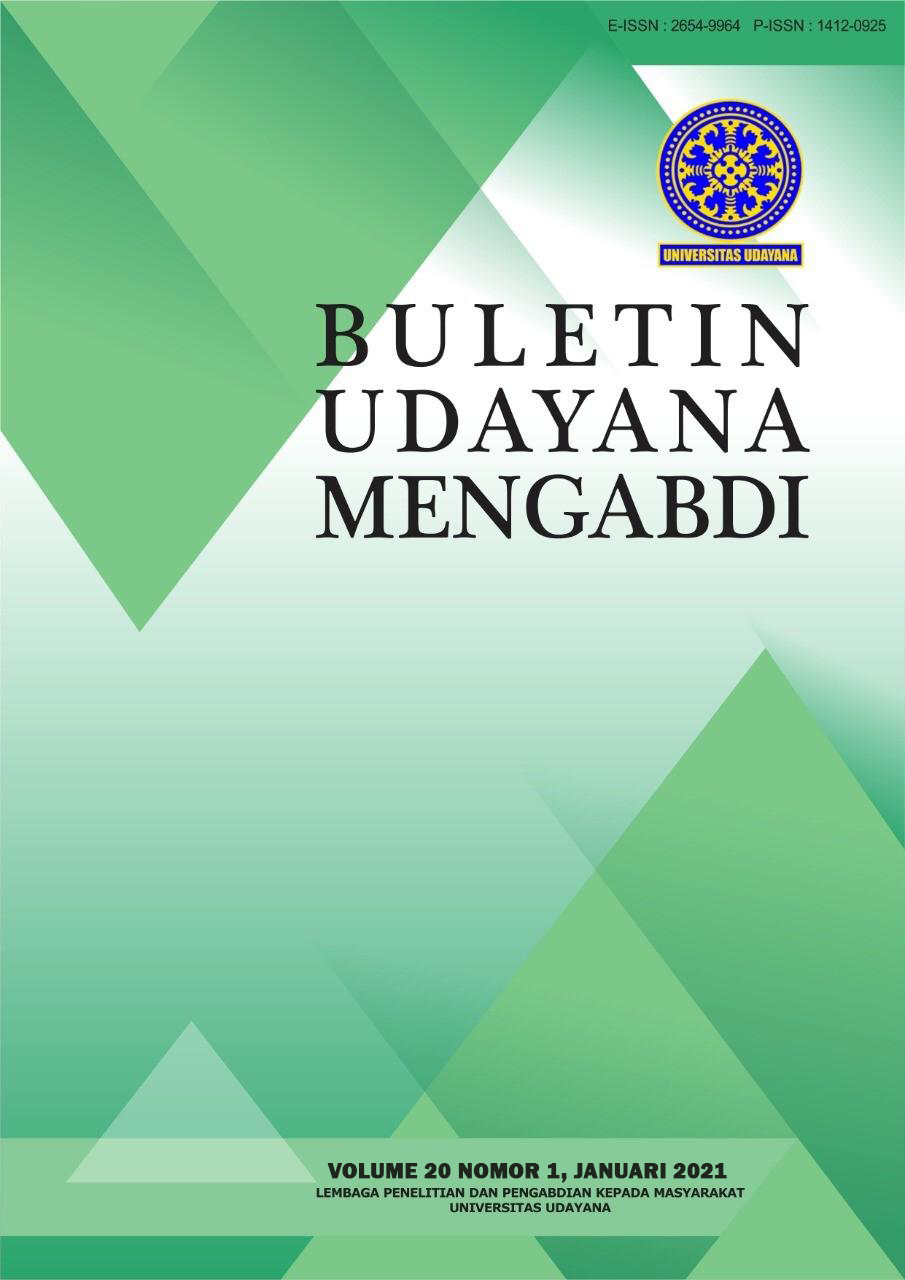TEKNOLOGI TEPAT GUNA PADA INDUSTRI VIRGIN COCONUT OIL DENGAN PRINSIP ZERO WASTE
Abstract
The coconut industry is one of the leading industries in North Lombok, in the form of raw materials, copra, as well as coconut oil and Virgin Coconut Oil (VCO). In producing VCO, the resulting waste is still economically valuable, but partners only sell it as animal feed. Even though with a touch of innovation, VCO waste can be a very high added value, namely as desiccated coconut or dry shredded coconut. The development of VCO by-product is implemented by partners using proper food processing according to SNI 7381-2008 - coconut oil and SNI 01-3715-1995 - the quality of dry grated coconut and plays a role in zero waste so that it can be marketed in quality. The method applied is to provide education on good food processing methods and conduct training on the application of appropriate technology in VCO processing and by-product processing, training on the application of packaging technology, labeling, and storage techniques, and training in business management and marketing strategies. The results felt by partners through this activity were the partners' understanding and skills regarding processing coconut dregs from VCO to desiccated coconut increased through the technology package offered. In the situation of the Covid-19 pandemic by implementing health protocols, this program can run smoothly thanks to excellent cooperation and contributions by partners.
Keywords: Coconut, VCO, Zero Waste
Downloads
References
Dwijayanti, K., Darmawanto, E., Umam Khotibul. (2018). Penerapan Pengolahan Kelapa Menjadi Minyak Murni (VCO) Menggunakan Teknologi Pemanas Buatan. Journal of Dedicators Community, 2 (1): 27 – 38.
Ginting, W. L., Harahap, L. A., Rohanah, A. (2015). Uji Variasi Suhu Terhadap Mutu Kelapa Parut Kering Pada Alat Pengering Kelapa Parut (Desiccated Coconut). J. Rekayasa Pangan dan Pertanian, 3 (3): 407 – 411. (http://lombokutarakab.go.id/v1/profil-daerah/peta-wilayah).
Karouw, S., Barlina, R., Pasang, P. M. (2004). Pengolahan dan Penyimpanan Desiccated Coconut (Kelapa Parut Kering). Monograf Pasca Panen Kelapa. Balitka. 35 – 40.
Karo-Karo, C. M., Munir, A.P., Ichwan, N. (2015). Rancang Bangun Alat Pemarut Kelapa Kering. J. Rekayasa Pangan dan Pertanian, 3 (1): 100-103.
Natalia, Debora. (2008). Penentuan Umur Simpan Kelapa Parut Kering Dalam Kemasan Polyprophylene (PP) Berdasarkan Karakteristik Kimia, Sensoris Dan Fisik. Skripsi. Fakultas Teknologi Pertanian. Universitas Katolik Soegijapranata. Semarang.
Noor, Y.P., Harahap, L.A., Pannggabean, S. (2017). Uji Berbagai Tingkat Kecepatan Putaran Terhadap Kualitas Hasil Pada Alat Pengering Kelapa (Desiccated Coconut). J. Rekayasa Pangan dan Pertanian, 5 (2): 379-383.

This work is licensed under a Creative Commons Attribution-ShareAlike 4.0 International License.

This work is licensed under a Creative Commons Attribution-ShareAlike 4.0 International License.




.png)


1.png) GARUDA - GARBA RUJUKAN DIGITAL
GARUDA - GARBA RUJUKAN DIGITAL



